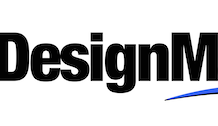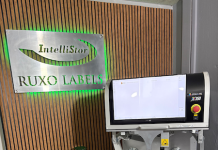According to Printing SA CEO Steve Thobela, even during tough economic times, there are opportunities for entrepreneurs to gain a foothold, and the printing industry is no exception. Smaller operations are flexible enough to adapt quickly to change and take advantage of gaps in the market. One such gap is digital printing, which is opening doors for small, medium and micro enterprises (SMME’s).
As Thobela explained, although print will always be an important part of any business’ daily requirements, changing technology compounded by a largely stagnant economy and poor consumer spending has seen a decline in demand for more traditional forms of print, including the printing of newspapers and magazines, letterheads, business cards, invoice books and business forms. Cutting of marketing budgets has also resulted in the printing of less brochures and fliers.
This has led to the decline in the number of smaller lithographic commercial printers with many smaller companies being bought up by or merging with larger printing companies.
At the same time, however, there has been an increased demand for digital printing that can supply much smaller orders. Printing SA Chambers across the country have seen growth in the number of digital printing start-ups.
‘This is evident in both the number of digital printing businesses and in the volumes that are passing through these businesses. This growth is largely due to their flexibility and the advantages that digital printing has when it comes to short print runs. It can accommodate both narrow and wide format printing requirements and meets many of today’s print demands,’ he said.
In addition to new businesses, he added that more traditional small commercial printers (sheet fed lithography) that have seen business decline have begun to invest in digital equipment.
This addresses one of the biggest perceived barriers to entry into the printing sector for small business: the cost of equipment. Many of the analogue presses (such as litho or flexo presses) are extremely expensive. Thus the sector, and the packaging industry in particularly, is very capital intensive and largely the ambit of large corporates. Machinery, of which a large portion is imported and subject to currency fluctuations, can cost anything from R1 million to R120 million.
However, the cost of digital equipment is far less, starting at around R10,000.
‘When it comes to starting a small digital print business, the barriers to entry are pretty low. Anyone starting out needs to have basic business skills and understand the legislation applicable to the areas in which they operate – and, of course, they also need technical knowledge.’
To fill these gaps, Printing SA provides entrepreneurship training and has also recently introduced a Digital Commercial Printing Training Programme. It can also provide a wide range of assistance to start-up businesses when it comes to compliance and labour issues.
Printing SA member and owner of Minuteman Press Hatfield, Gerhard Snyman, explained, ‘With the help of today’s digital communication systems and social media, a small printing business can start relatively easy. It does not need a litho capacity but can get along with a decent digital printer and basic bindery equipment.’
He said that, apart from having entrepreneurial flair and the courage to start up a business in the first place, a small business owner in the printing sector needs to have strong financial skills for managing cash flow on a day-to-day basis and developing profitable but competitive pricing structures, marketing skills and management skills that enable one to select the right staff, manage output and regulate quality.
He noted that although being part of the international Minuteman Press franchise made it much easier for him because his business had bought into a winning formula, there were many challenges. These included raising finance, finding the right calibre of staff, offering consistent quality and service and developing a reliable supplier base.
He has plenty of advice for entrepreneurs wanting to follow in his footsteps: ‘Believe in your decision to start a small printing enterprise and work very hard to realise your dream of owning a successful business. This is a job of long hours and the stress of very tight deadlines. Build your business step by step. Get advice from business advisers and your business bank.’
‘Become a member of Printing SA. This will give you access to valuable member services such as advice, standard industry contracts and make you feel part of the industry. Attend member forums to learn about the latest industry developments and network with other members and suppliers,’ he added.





















